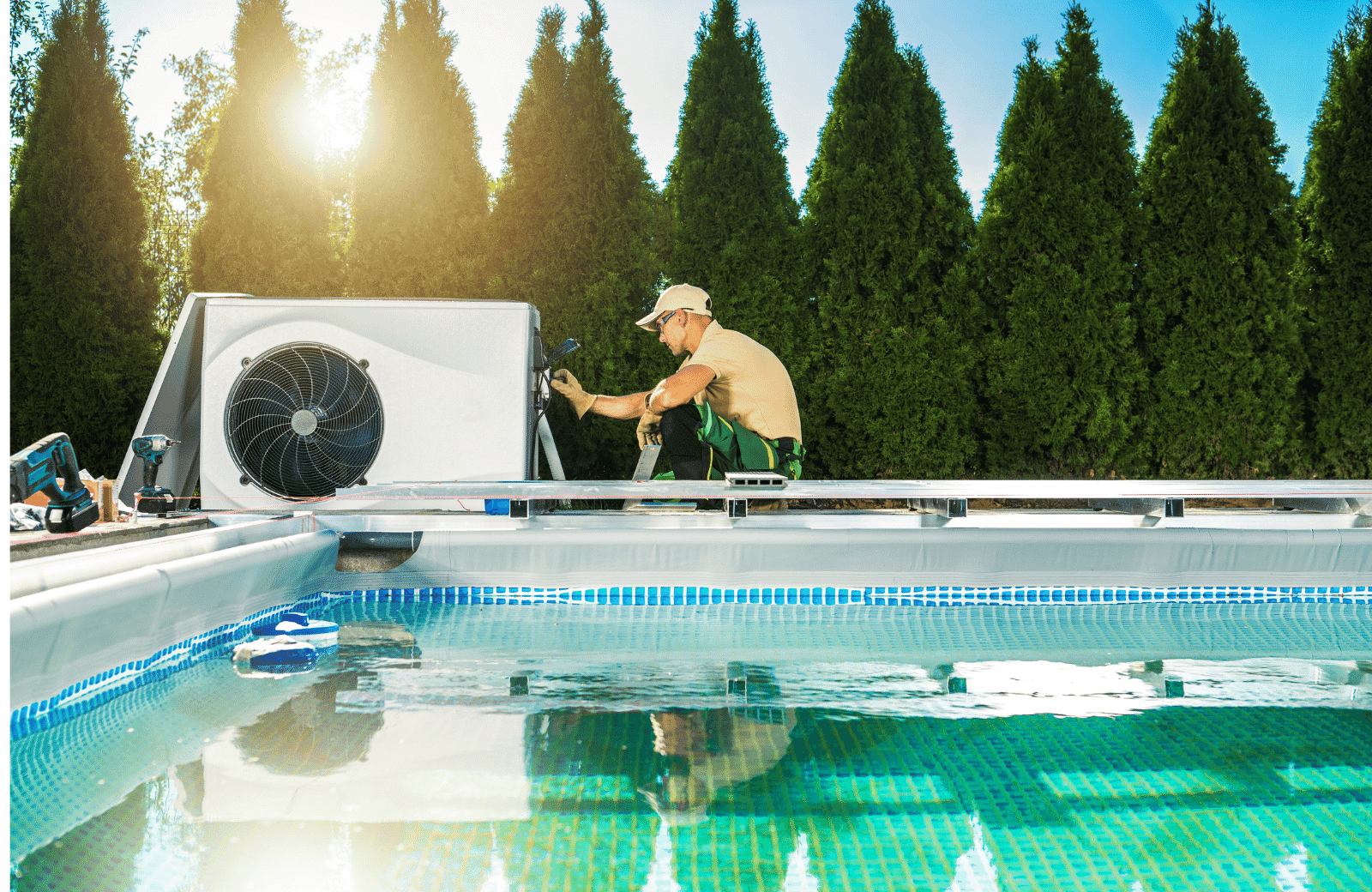Are you ready to transform your backyard into a summer oasis with an above ground pool? Before you jump in, it's crucial to understand the importance of obtaining a permit for your pool installation. By following the necessary regulations and guidelines, you can ensure the safety and legality of your pool. Skipping this step can result in fines, legal issues, and even decreased property value. Let's explore the world of above ground pool permits and make sure you're swimming in peace of mind.
Key Takeaways
- Permits for above ground pools are necessary to ensure safety guidelines are followed and the pool is installed correctly.
- Skipping permits can result in fines, legal consequences, and property devaluation.
- Permits may be required for pool size, placement in ecologically vulnerable areas, zoning laws, and certain equipment installations.
- Safety requirements for above ground pools include installing a secure fence, using pool covers, installing pool alarms, appointing a responsible adult lifeguard, and establishing pool rules.
Exploring the Importance of Permits for Above Ground Pools
Permits for above ground pools are crucial for ensuring the safety and legitimacy of your pool installation. Obtaining the necessary permits is not only a legal requirement but also a responsible action to protect your family and property. There are several factors that can affect permit requirements for above ground pools.
The size and depth of your pool may play a role in determining whether a permit is necessary. Some jurisdictions have specific thresholds that, if exceeded, require you to obtain a permit. Additionally, if you plan to install your pool in ecologically sensitive areas like floodplains or wetlands, you may need to comply with environmental regulations, which could include obtaining a permit.
Zoning laws also come into play when it comes to pool installations. Certain areas may have restrictions on where pools can be placed, requiring you to obtain a permit. Furthermore, if your pool installation involves electrical or plumbing work, permits will be necessary to ensure that everything is done safely and up to code. In some cases, gas lines for certain heaters may also require permits.
Consulting pool professionals can be highly beneficial when it comes to navigating the permit process. They have the knowledge and expertise to guide you through local regulations and requirements. Pool professionals can also assist with the documentation and plans needed for the permit application. They can advise on the typical waiting period for permit approval and help ensure that your installation meets all safety standards.
Factors Influencing the Need for a Permit for Your Above Ground Pool
Installing an above ground pool may require a permit depending on factors such as pool size, location, and safety requirements. Obtaining a permit for your above ground pool is crucial for several reasons. First and foremost, permits ensure that your pool is installed correctly and with appropriate materials, guaranteeing the safety of you and your loved ones. Additionally, obtaining a permit demonstrates your commitment to following regulations and guidelines, which can enhance the value of your property. Skipping the permit process can lead to fines, legal consequences, and even property devaluation.
When considering the need for a permit, there are several factors that come into play. Pool depth and size exceeding certain thresholds may require a permit, as larger pools can pose greater safety risks. If you plan to place your pool in ecologically vulnerable areas, such as floodplains or wetlands, you may need to comply with environmental regulations and obtain the necessary permits. Additionally, specific zoning laws in your area may dictate where above ground pools can be installed, making a permit a requirement.
Ensuring the safety of your above ground pool is of utmost importance. Installing a secure fence with a self-closing and self-latching gate is crucial to prevent unauthorized access. Pool covers are recommended for when the pool is not in use, and pool alarms should be installed to alert for any unauthorized access or falls into the water. Appointing a responsible adult as a lifeguard when the pool is in use and establishing pool rules can further prevent accidents and emergencies.
To determine if a permit is required for your above ground pool, it is best to inquire with your local municipality. Find out the department responsible for construction and pool permits and ask about local pool size restrictions that may necessitate permits. Inquire about safety measures, such as fencing requirements, and check for any additional zoning regulations that may apply. Understanding the process, forms, fees, and inspections associated with obtaining a permit is essential.
Seeking professional advice from pool professionals in your area is highly recommended. They have expertise in navigating the permit application process and can provide guidance on local regulations and requirements. Pool professionals can also assist with the necessary documentation and plans needed for permit applications. Additionally, they can advise on the typical waiting period for permit approval, ensuring a smooth and efficient process.
Step-by-Step Guide to Obtaining a Permit for Your Above Ground Pool
When obtaining a permit for your above ground pool, it's important to follow a step-by-step guide to ensure a smooth process. By understanding the permit application process and following the necessary steps, you can avoid complications and ensure that your pool installation is legal and safe.
Below is a helpful guide to assist you in obtaining the necessary permits for your above ground pool:
| Step | Description |
|---|---|
| 1. | Research local regulations and requirements for above ground pools. Determine if a permit is required and familiarize yourself with any specific guidelines or restrictions. |
| 2. | Contact your local municipality or building department to inquire about the permit application process. Find out which department handles pool permits and obtain the necessary forms and information. |
| 3. | Fill out the permit application form accurately and completely. Provide all required documentation, such as pool specifications, site plans, and proof of compliance with safety regulations. |
| 4. | Pay the required permit fees. The amount may vary depending on your location and the scope of your pool installation. Keep a copy of the receipt for your records. |
| 5. | Schedule any necessary inspections, such as electrical or plumbing, as required by the permit. Make sure your pool installation meets all safety and building code requirements. |
| 6. | Await approval of your permit. The processing time may vary, so it's important to plan your pool installation accordingly. Once approved, you can proceed with the installation of your above ground pool. |
Consequences of Not Obtaining the Required Permits for Your Above Ground Pool
Neglecting to obtain the necessary permits for your above ground pool can result in fines, legal consequences, and decreased property value. It is crucial to understand the potential financial penalties and legal implications of not obtaining the required permits. Here are the consequences you may face:
Financial Penalties:
- You may be issued hefty fines for installing an above ground pool without the necessary permits.
- These fines can vary depending on your location and the severity of the violation.
- Non-compliance with permit regulations can lead to repeated fines if you fail to rectify the situation promptly.
Legal Implications:
- Without the proper permits, you may be subject to legal action and potential lawsuits.
- In some cases, you may be required to remove the pool entirely if it is deemed non-compliant.
- Your homeowner's insurance may not cover accidents or damages related to an unpermitted pool.
Decreased Property Value:
- An unpermitted pool can significantly decrease the value of your property.
- Prospective buyers may be deterred by the potential legal issues associated with an unpermitted pool.
- It may also affect your ability to sell your property in the future.
To avoid these consequences, it is essential to research and understand the permit requirements for above ground pools in your area. Contact your local authorities to determine the specific permits needed and any additional regulations that apply. Seeking professional advice from pool experts can also help navigate the permit application process and ensure compliance with all safety guidelines. By obtaining the necessary permits, you can enjoy your above ground pool without worrying about financial penalties or legal implications.
Understanding the Regulations and Requirements for Above Ground Pool Permits
Understanding the regulations and requirements for permits ensures a smooth process when obtaining approval for your above ground pool. It is crucial to prioritize above ground pool safety and environmental compliance when it comes to installing your pool. Permits are necessary to ensure that the pool is installed correctly and with appropriate materials, minimizing potential accidents or harm to the environment. Skipping permits can lead to fines, legal consequences, and even property devaluation.
When considering permits for above ground pools, there are several situations that may require approval. If the pool exceeds certain thresholds in terms of depth and size, a permit may be necessary. Additionally, if you plan to place the pool in ecologically vulnerable areas like floodplains or wetlands, you may need to comply with environmental regulations. Zoning laws may also dictate where above ground pools can be installed, requiring permits. Moreover, any electrical or plumbing work associated with the pool will necessitate a permit, and gas lines for certain heaters may require approval as well.
In terms of above ground pool safety, there are important considerations to keep in mind. Installing a secure fence with a self-closing and self-latching gate is crucial to prevent unauthorized access. Pool covers should be used when the pool is not in use to further enhance safety. Pool alarms can also be installed to alert for any unauthorized access or potential falls into the water. It is also recommended to appoint a responsible adult as a lifeguard whenever the pool is in use and to establish clear pool rules to prevent accidents and emergencies.
To ensure compliance with local regulations and requirements, it is advisable to make inquiries to your local municipality. Determine the department responsible for construction and pool permits and inquire about local pool size restrictions that may apply. Ask about safety measures and fencing requirements for pool installations and check for any additional zoning regulations that may be applicable to above ground pools. It is essential to understand the process, forms, fees, and inspections associated with obtaining a permit.
Seeking professional advice from pool professionals in your area is highly recommended. They can provide specific information on permits, local regulations, and requirements. Pool professionals have expertise in navigating the permit application process and can assist with documentation and plans needed for the application. They can also advise on the typical waiting period for permit approval.
Frequently Asked Questions
Are Permits Required for All Above Ground Pools, Regardless of Size or Location?
Permits for above ground pools are crucial for ensuring safety and compliance with regulations. Regardless of size or location, permits may be required. It's important to check with local authorities to determine the specific regulations in your area. Permits ensure that the pool is installed correctly and with appropriate materials. Skipping permits can result in fines, legal consequences, and property devaluation. Always prioritize safety and legitimacy by obtaining the necessary permits for your above ground pool.
How Long Does It Typically Take to Obtain a Permit for an Above Ground Pool?
On average, obtaining a permit for an above ground pool can take several weeks. The processing time depends on factors such as the municipality's workload and the completeness of your application. Common reasons for permit delays include incomplete paperwork, zoning issues, or failure to meet safety requirements. It's essential to be thorough and ensure your application is complete to avoid unnecessary delays. Consulting with pool professionals and local authorities can provide valuable guidance throughout the permit application process.
Are There Any Specific Safety Requirements or Regulations That Need to Be Met in Order to Obtain a Permit?
To obtain a permit for an above ground pool, you must adhere to specific safety regulations. These requirements ensure the safety of individuals using the pool and prevent accidents. The permit process typically involves submitting documentation, plans, and fees to the local municipality. Safety measures such as installing a secure fence, pool covers, and alarms are important considerations. Seeking advice from pool professionals can help navigate the permit application process and ensure compliance with all regulations.
Can I Install an Above Ground Pool on My Property Without a Permit if It Is Only Temporary?
If you're considering a temporary installation of an above ground pool, it's important to understand that permits for permanent pools may still be required. While the duration of your pool's presence may be temporary, local authorities often have specific guidelines in place that apply to all pool installations. Skipping the permit process can result in legal consequences and potential fines. To ensure compliance and avoid any issues, it's best to check with your local municipality to determine if a permit is necessary, even for a temporary installation.
Are There Any Exceptions or Special Circumstances Where a Permit May Not Be Required for an Above Ground Pool?
In certain special circumstances, there may be exceptions where a permit may not be required for an above ground pool. For example, some homeowner's association rules may exempt homeowners from obtaining permits for temporary pools. However, it is important to note that these exceptions may vary depending on your specific location and local regulations. Always consult with your local municipality or pool professionals to ensure compliance and to determine if a permit is required for your above ground pool.
Conclusion
In conclusion, obtaining a permit for your above ground pool is not just a bureaucratic requirement, but a crucial step in ensuring safety and compliance with regulations. Skipping this process can lead to fines, legal consequences, and property devaluation. By seeking professional advice and adhering to the guidelines set by your local municipality, you can guarantee a safe and legitimate pool installation. So, before you dive into this exciting project, make sure to take the necessary steps and obtain the required permits.





